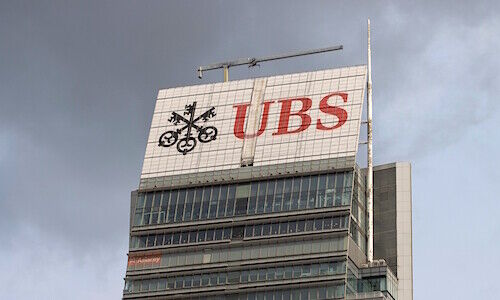UBS: Asian Economies Hit by Tariffs Face Three Options
US President Donald Trump has escalated threats of further import restrictions including so-called reciprocal tariffs. According to a UBS report, Asian economies that will be hardest hit face three options.
The global trade war could be intensifying. In the latest, the US announced that 25 percent tariffs on steel and aluminum imports from Canada would come into effect this week after walking back on a 50 percent threat. And in early April, there are plans for the implementation of reciprocal tariffs.
In Asia, cyclical economies are expected to be hardest hit. According to a report by UBS Global Wealth Management's chief investment office, the base case is for global product tariffs applied on autos, semis, chips, drugs, steel and aluminum which will affect Korea, Japan, Taiwan, Singapore, Malaysia and Thailand. The Swiss private bank also anticipates an additional 10 percent tariff on Chinese goods.
How Will Asia Respond?
UBS believes that the aforementioned economies face three options when fresh tariffs are announced.
One, they could take down domestic barriers and potentially avoid reciprocal impact. Two, they could accept tariffs and attempt to share costs along the supply chain. Three, they could negotiate deals that include buying US goods, sharing intellectual property and know-how alongside other actions in US interests.
«The damage will ultimately depend on how each economy responds, and whether concessions and deals can offset the impact,» the report said.
Economic Impact
In terms of the economic impact in Asia, UBS’ base case is for the cumulative regional GDP impact of tariffs around 50 to 100 basis points (bps).
In a risk case, a more significant slowdown of 200 to 300bps could take place if dealmaking fails, tariffs are applied to a broader range of finished consumer products and the US economy slows meaningfully below trend.
Market Outlook
In markets, UBS forecasts a high single-digit upside for Asia ex-Japan equities in its base case. This is due to generally resilient growth conditions, low regional inflation, policy easing, expectations of moderated dollar strength in the second half and strong Asian links to artificial intelligence. In a downside scenario, the bank targets a derating of 5-10 percent if tariffs are more aggressive than expected.
«However, Team Trump’s unorthodox and hasty policymaking approach is sure to create more uncertainty and volatility in the weeks and months ahead. There is also the risk that markets have gone from overpricing to underpricing tariff risks,» UBS added.
«To manage these, we continue to recommend investors focus their equity allocations on structural themes like AI (especially in China and the US) and power generation, hedge exposure via structured strategies, and diversify portfolios with assets including quality bonds, gold, and alternatives.»



























